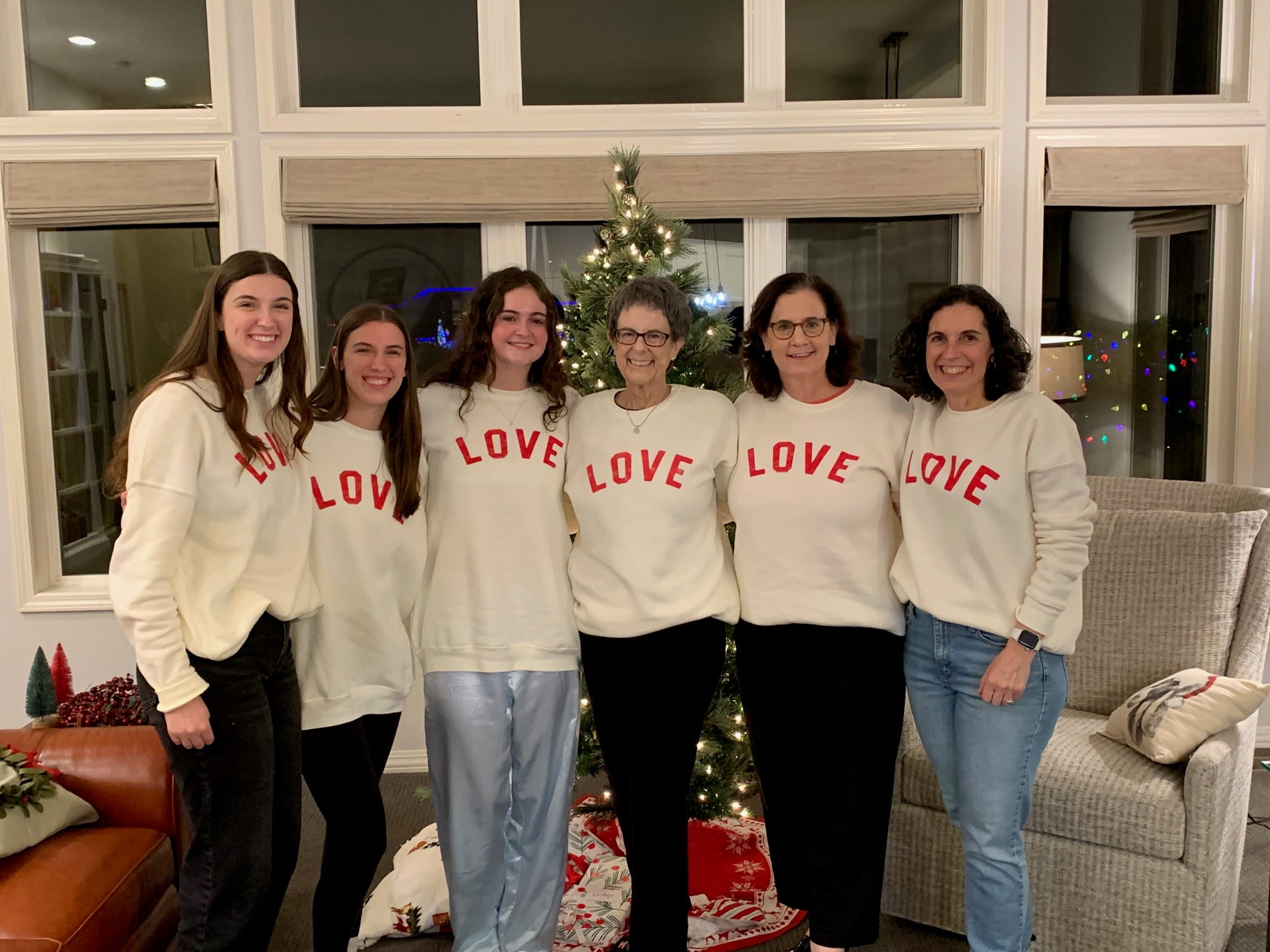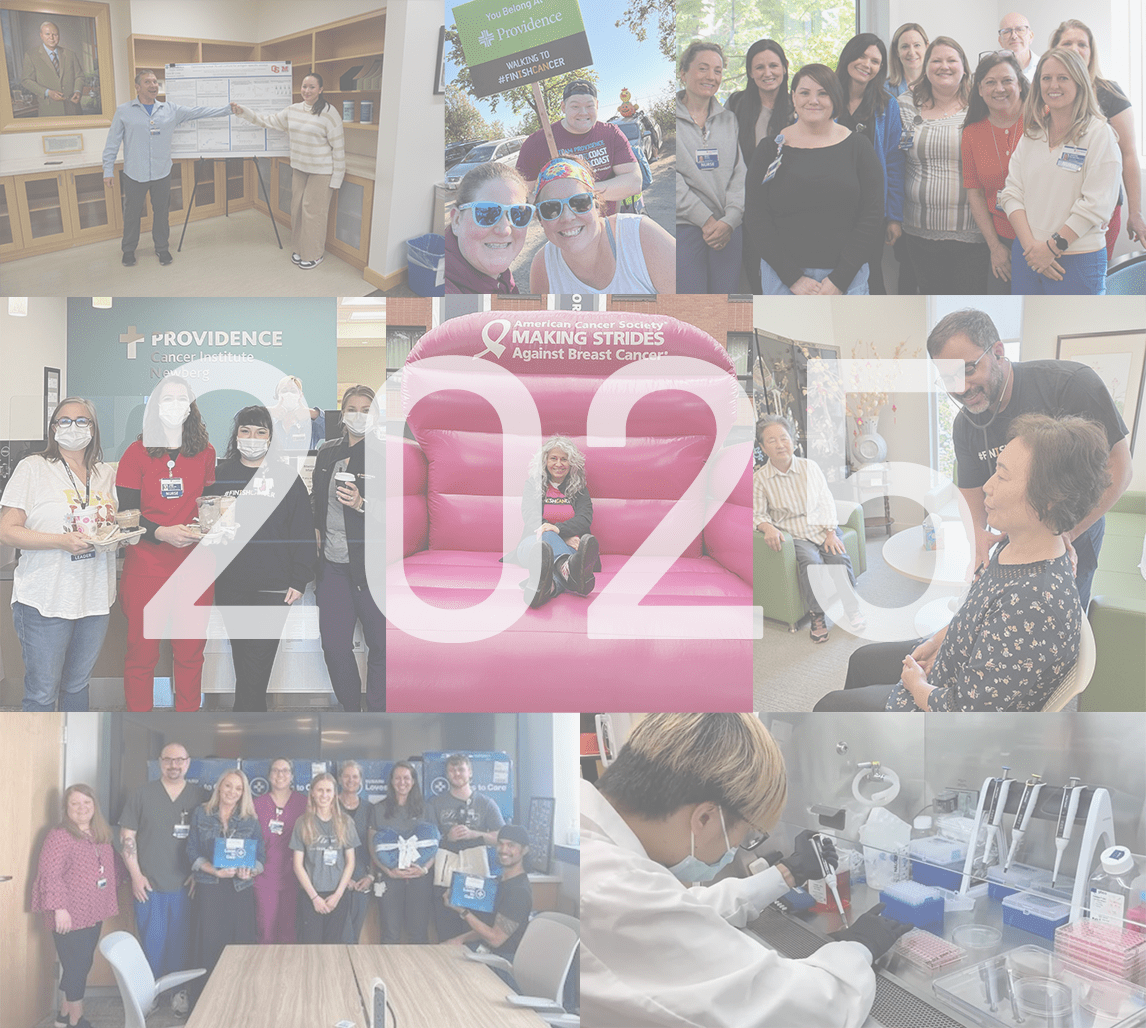New study opens for non-GCB DLBCL patients under age 70
Diffuse large B-cell lymphoma (DLBCL) is the most common type of non-Hodgkin lymphoma. More than 18,000 people in the United States are diagnosed with the disease each year, and although DLBCL affects patients of all ages, people over age 60 make up most diagnoses.
DLBCL is divided into the two significant subgroups: germinal center B-cell-like (GCB) DLBCL, and non-germinal center B-cell-like (non-GCB) DLBCL, which does not have a favorable prognosis.
A new phase III clinical trial for patients under age 70 with previously untreated non-GCB DLBCL is now being offered at Earle A. Chiles Research Institute, a division of Providence Cancer Institute of Oregon. The randomized, double-blind trial is designed to study the safety and efficacy of acalabrutinib plus standard chemotherapy versus standard chemotherapy plus a placebo in treating patients with this aggressive form of lymphoma.
Targeted therapy combined with standard chemotherapy
DLBCL is characterized by rapidly growing tumors in the lymph nodes, spleen, liver, bone marrow or other tissues and organs. Nearly 60% of people with the disease are cured using standard chemotherapy. However, 35-40% of patients have disease that either relapses or is resistant to initial therapy.
In this trial, the standard chemotherapy is R-CHOP, a combination of chemotherapy drugs (cyclophosphamide, doxorubicin, vincristine, and prednisone) along with rituximab, a monoclonal antibody directed against B cells.
Acalabrutinib is a tyrosine kinase inhibitor often used to treat people with mantle cell lymphoma. (Tyrosine kinase inhibitors target the proteins that control how cancer cells grow, divide and spread.) Acalabrutinib has been used alone or with obinutuzumab to treat chronic lymphocytic leukemia and small lymphocytic lymphoma and has shown to initiate higher responses in patients with non-GCB lymphoma than those with GCB lymphoma.
A previous study in non-GCB DLBCL patients showed that the addition of ibrutinib (a tyrosine kinase inhibitor like acalabrutinib) to R-CHOP did not improve the rate of relapse or survival in patients over age 60. However, patients under age 60 seemed to benefit from the addition of ibrutinib to standard chemotherapy.
Study is currently recruiting patients
This study is available at two Providence sites in Oregon. Stacy K. Lewis, M.D., division director of Medical Oncology/Hematology and medical director of Autologous Stem Cell Transplant, Providence Cancer Institute, is principal investigator of the study.
To learn more, go to:
Combination of acalabrutinib with R-CHOP in subjects with previously untreated non-GCB DLBCL
To refer a patient for this clinical trial, contact our clinical research office:
- Call 503-215-2614
- Submit a referral form
- Send an email
New research studies are added frequently. To learn more, see:
- Studies for hematologic cancers
- Studies for many types of cancer and advanced cancers
- All cancer studies at Providence Cancer Institute
Providence Hematologic Malignancies Program cares for patients with cancers of the blood, bone marrow and lymph nodes, including Hodgkin and non-Hodgkin lymphomas, leukemia, myeloma, and the myelodysplastic syndromes. We combine the most advanced therapies, breakthrough research and multidisciplinary care to fight cancer. We are among the top centers capable of administering adoptive cellular therapies such as chimeric antigen receptor (CAR) T-cell therapy and tumor infiltrating lymphocytes (TIL).
Related news
Celebrating a year of community engagement
Understanding lymphoma: The Basics and Beyond with Dr. Natasha Edwin
Multi-indication clinical trials help evaluate new medications for future treatments




